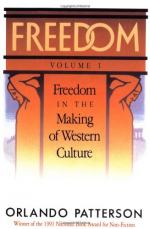|
This section contains 568 words (approx. 2 pages at 400 words per page) |

|
Chapter 2 Summary and Analysis
Given the premise that a social reaction between slave, slaveholder and society must take place in order for freedom to develop as a value, why didn't freedom as a value develop universally? Freedom as an idea did not develop into a value everywhere as the social reaction premise suggests. Societies everywhere resisted the inception of freedom as a value. Giving the slave personal freedom means less freedom for the slave-master.
Slavery is developing and changing during this period. Among the Tupinamba, the slave existed for the honor and dignity of the slave master. In the days of ancient Carthage, the slave develops an economic value. Slaves result in output. The financial welfare of the slaveholder is now becoming dependent on the productivity of the slave. Still, the slave wants to be free and an equal member of society. Even if a...
(read more from the Chapter 2 Summary)
|
This section contains 568 words (approx. 2 pages at 400 words per page) |

|




